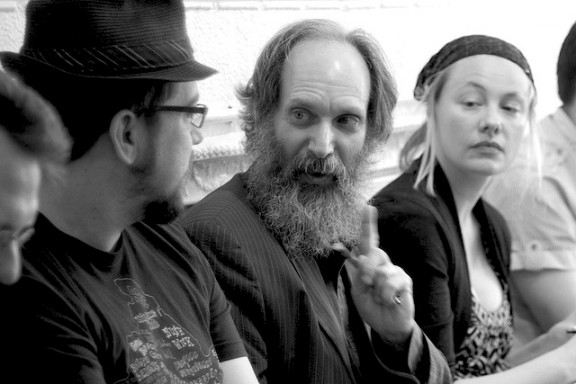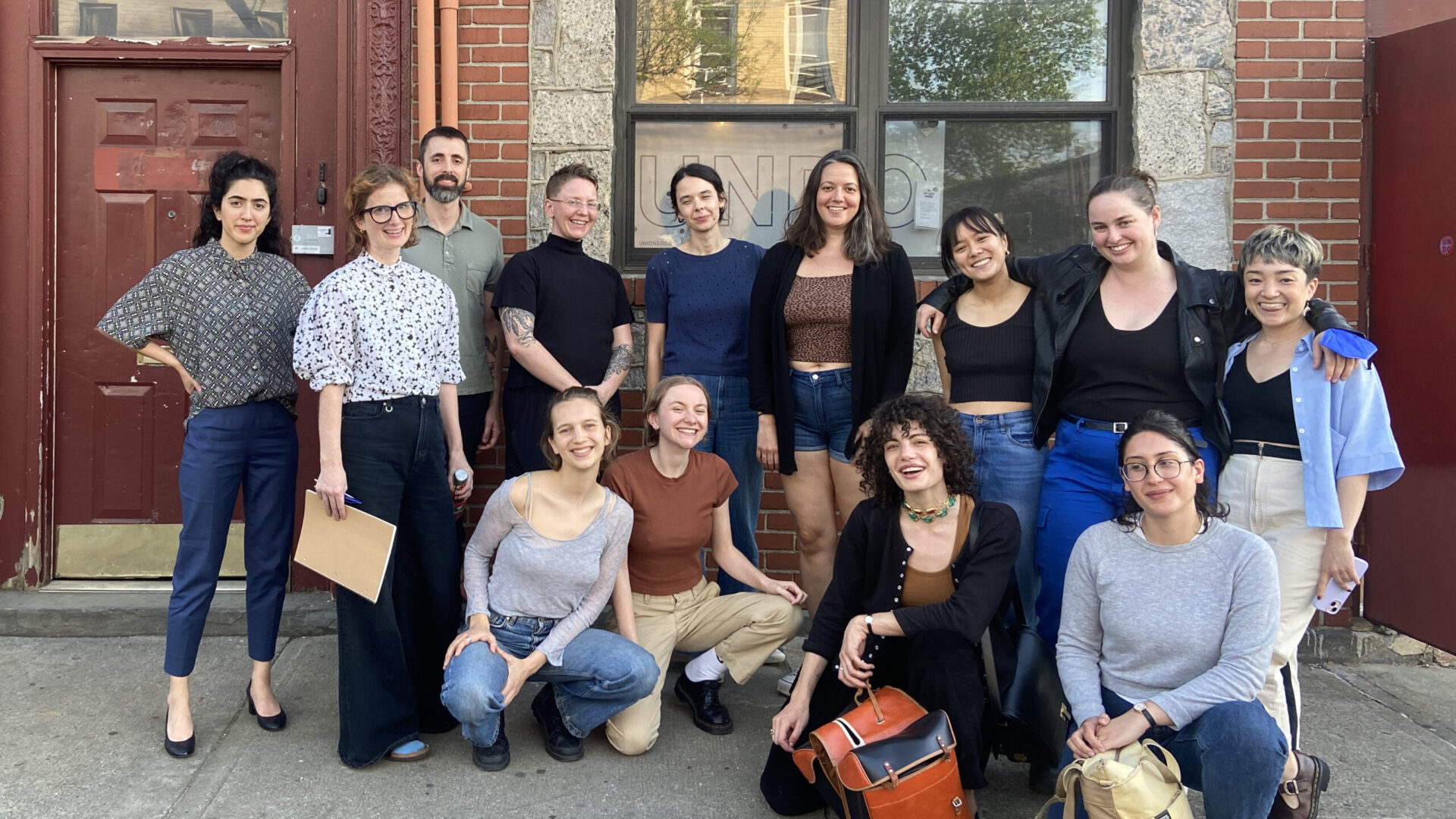Richard: But, historically, I actually think that when we look back many years from now with the benefit of both retrospect and maybe being retired and not worried about making a living, we’ll see that there was an interesting little parenthesis that opened up around 1960, or 1965 and closed around 2000 or 2005. In other words, when young people started going to universities in large numbers, when newspapers proliferated, when a new generation of young people had new devotion to artistic concerns, critics were able to thrive. But I don’t think they thrived before. In other words, critics were always scrounging jobs from freelance from one place or another, and so many of the best critics, so many of the best critics who have ever written, weren’t able to make a living as critics, and they did some peculiar things, such as gossip columns for French newspapers.
And so, I’m saying this—look, knock on wood I’m employed at the moment. And I consider myself extremely lucky to be in the position of being employed writing about interesting films, but I think that criticism as a profession is one thing, and criticism as an enterprise is another. And the health of it is so strong, partly because of the internet, and that even people who are only being read by other critics, have a powerful effect that they couldn’t have had a generation ago, or even ten, fifteen years ago. It’s a rippling or a critic writing about a film that he saw at South by Southwest, or that he saw here, or that he or she saw at Anthology. It’s a very powerful, and it goes from that person writing a blog to people writing at the New York Times in the space of two, three, four weeks. And then as a result, filmmakers whose work might have had a much harder time getting seen and talked about are having a somewhat better time of it now because of critics who are not making a living as critics unfortunately, as deserve to be.
Ed: To get back to the question of what kind of information documentary gives, I actually have an interesting perspective on this, I wrote a book a few years ago on the history of war and video games, and in the course of my research I met a pair of documentary filmmakers from Greece who were making a documentary about the same subject. We met because we were intersecting at the same event. We decided to collaborate our research. We went to some things together. I did research as a writer and they shot footage as filmmakers. We were kind of on the same schedule. Their film was eventually made and shown on I think on Greek television and so forth. When you really get down to it, 90 minutes in a documentary, the amount of actual information you receive is very small compared to let’s say reading a book. Many of you who make films you realize this—what you can say in those 90 minutes factually is tiny, it’s the tiniest bit of information. So really what you’re getting is not so much the facts, I mean, you can go on Wikipedia and get those facts or wherever. But you’re getting other things.
Let’s say a film like Occupation Dreamland by Garrett Scott and Ian Olds. This is a film I just re-watched. It’s a film that, it’s not giving you so much facts about what went down in Iraq during the war with soldiers; it’s giving you a feeling of what it meant to be there, to be them, what it meant to be placed in that situation. And, in a sense, almost what it meant to be the filmmakers visiting them. Those kinds of feelings are things that you can’t receive from a dry, journalistic listing of facts. It’s something you might receive from a novelization, or someone like a Janet Malcolm, who’s a very nuanced journalist. To me that seems to be what documentary can really do that the written word doesn’t do as often, or at least journalism doesn’t do as often.
Lisa: The flip of that though, and I think this is the other thing that we haven’t quite said out loud, that I always feel confronted by when I’m reviewing a documentary is the idea of propaganda, to some degree. Because you’re right, because there are so many fewer facts that can be presented. You know how many choices have gone into what exactly we’re looking at in a given 90 minutes of documentary. For example, the amount of footage that ends up on a cutting room floor when you’re making a doc compared to a normal movie must be enormous, right? So I’m really aware that an angle is being constructed here. And that can be very complicated when you’re watching it as an audience member. There’s a feeling of fake neutrality is complicated because obviously an angle is being built. I was thinking about this with that movie about the Barnes Foundation, I forgot the name—
Audience member: Art of the Steal.
Lisa: There’s a duality about that film, because on one level I think it’s a great story, I was very moved by a lot of what was going on. I also felt like I was being absolutely preached at the entire time I was watching that film. I understood why, I agreed. But I also felt like it was so uneven, that to some degree I felt, frankly, yeah—I mean, it was very clear where the filmmaker was coming from. It raises a spectrum of questions to me.
Number one, does that matter? It’s ok for people to have an agenda when they’re making a film, that’s ok. But it’s the question I come back to over and over, which is that you want to have some agency as a viewer, that you’re also coming to some conclusion, whether or not that’s an illusion. That’s what’s really complicated. We’re looking at the 90 minutes of this particular topic that someone else has chosen for us. And so the idea of objectivity is to some degree a construct, but we need it.
Richard: False neutrality is exactly one of the problems in narrative filmmaking these days, you know fiction filmmaking.
Lisa: Yeah, that’s true.
Richard: I think that it’s a tone of the times, so to speak. But I just had an interesting documentary experience yesterday that has nothing to do with a film, but has to do with film as such, which is that a colleague of mine, Blake, sent along to me word about the presence online of the original audio tapes of Francois Truffaut’s interviews with Alfred Hitchcock which went into the making of The Book—of course, I know The Book, we all know The Book. And I had heard little snippets of these tapes, but I had never heard them in their entirety. There are twenty-five of these on Tom Sechman’s wonderful website. But I did start to listen. And much as I like The Book, the experience of listening to these tapes is, it’s an artistic experience. Truffaut realized a work of art that he was unaware of realizing when he recorded these audio tapes. Because you hear Truffaut speaking in French, you hear Helen Scott translating from French into English, you hear Hitchcock beginning to respond. When he takes a breath Helen Scott translates from English into French for Truffaut. The process of becoming, the realization of these thoughts over time is so much deeper an experience than simply reading a transcript, omitting the translations and the pauses in a book, and this is the essence of documentary.
Lisa: On the flip of it, you have a Michael Moore character, who not only tells you exactly what to think but also makes himself the main character of a lot of his films. And, when he first came on the scene, I sort of almost appreciated him for that because it was so overt. But then, there’s something loathsome about it as well. I mean, you feel manipulated. And it’s always a question: how much agency do we want as the person who’s being talked it?

Richard: One interesting thing about documentary is that it’s not just Michael Moore where the filmmaker intervenes or is a character in the action. One of the more prevalent genres is one in which the documentary filmmaker is personally implicated in the action. I always feel that it’s more or less like in life, where when you’re telling a story about yourself, you can always tell that it’s heading in the right direction if you yourself are cast in the worst possible light. I think this is pretty much that case with documentary filmmaking. The problem with Michael Moore isn’t that he’s present. It isn’t even that he is the impresario who is telling you what to think. It’s that Michael Moore as a character is not very revealing of Michael Moore as a character. Whereas, the filmmakers who make films in which they’re implicated, when their warts begin to come out, not merely incidentally for viewers who are inclined to watch for them, but when you sense that a filmmaker is being unsparing towards him or herself, then the presence becomes intrinsically interesting.
Colin: Alright, next question. [laughter]
Lisa: That can get very tautological, though, too, where it ceases almost entirely to be about any subject besides the filmmakers, and then they’re just burrowing down into layers about themselves. Like that documentary that was made about Hurricane Katrina… Ax in the Attic. Which I really like, actually. But one of the big criticisms against it was that the filmmakers spent too much time burrowing into their analysis of why they were making it, and what was the point. They put themselves in an unflattering light but it was still about them.






This is a great document of a great discussion & I want to thank UnionDocs for sharing it.
Pingback: Underground Film Links: May 22, 2011 | Bad Lit